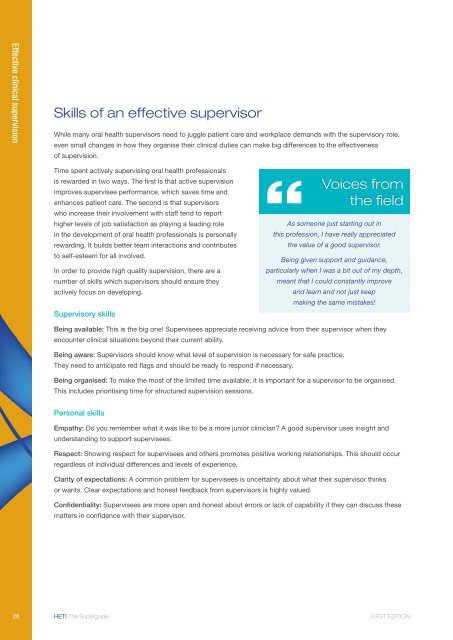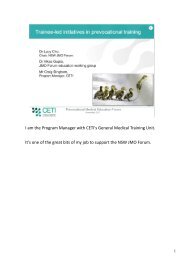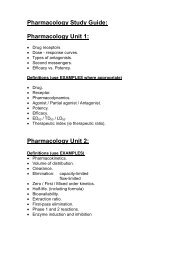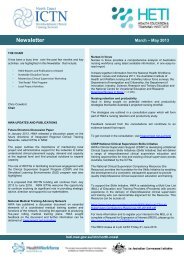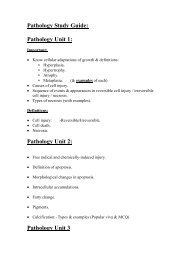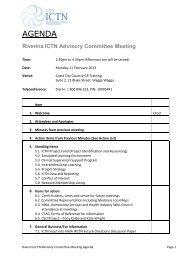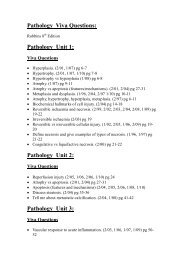Open - HETI - NSW Government
Open - HETI - NSW Government
Open - HETI - NSW Government
- No tags were found...
Create successful ePaper yourself
Turn your PDF publications into a flip-book with our unique Google optimized e-Paper software.
Effective clinical supervisionSkills of an effective supervisorWhile many oral health supervisors need to juggle patient care and workplace demands with the supervisory role,even small changes in how they organise their clinical duties can make big differences to the effectivenessof supervision.Time spent actively supervising oral health professionalsis rewarded in two ways. The first is that active supervisionimproves supervisee performance, which saves time andenhances patient care. The second is that supervisorswho increase their involvement with staff tend to reporthigher levels of job satisfaction as playing a leading rolein the development of oral health professionals is personallyrewarding. It builds better team interactions and contributesto self-esteem for all involved.In order to provide high quality supervision, there are anumber of skills which supervisors should ensure theyactively focus on developing.Supervisory skillsVoices fromthe fieldAs someone just starting out inthis profession, I have really appreciatedthe value of a good supervisor.Being given support and guidance,particularly when I was a bit out of my depth,meant that I could constantly improveand learn and not just keepmaking the same mistakes!Being available: This is the big one! Supervisees appreciate receiving advice from their supervisor when theyencounter clinical situations beyond their current ability.Being aware: Supervisors should know what level of supervision is necessary for safe practice.They need to anticipate red flags and should be ready to respond if necessary.Being organised: To make the most of the limited time available, it is important for a supervisor to be organised.This includes prioritising time for structured supervision sessions.Personal skillsEmpathy: Do you remember what it was like to be a more junior clinician? A good supervisor uses insight andunderstanding to support supervisees.Respect: Showing respect for supervisees and others promotes positive working relationships. This should occurregardless of individual differences and levels of experience.Clarity of expectations: A common problem for supervisees is uncertainty about what their supervisor thinksor wants. Clear expectations and honest feedback from supervisors is highly valued.Confidentiality: Supervisees are more open and honest about errors or lack of capability if they can discuss thesematters in confidence with their supervisor.26 <strong>HETI</strong> The Superguide FIRST EDITION


